
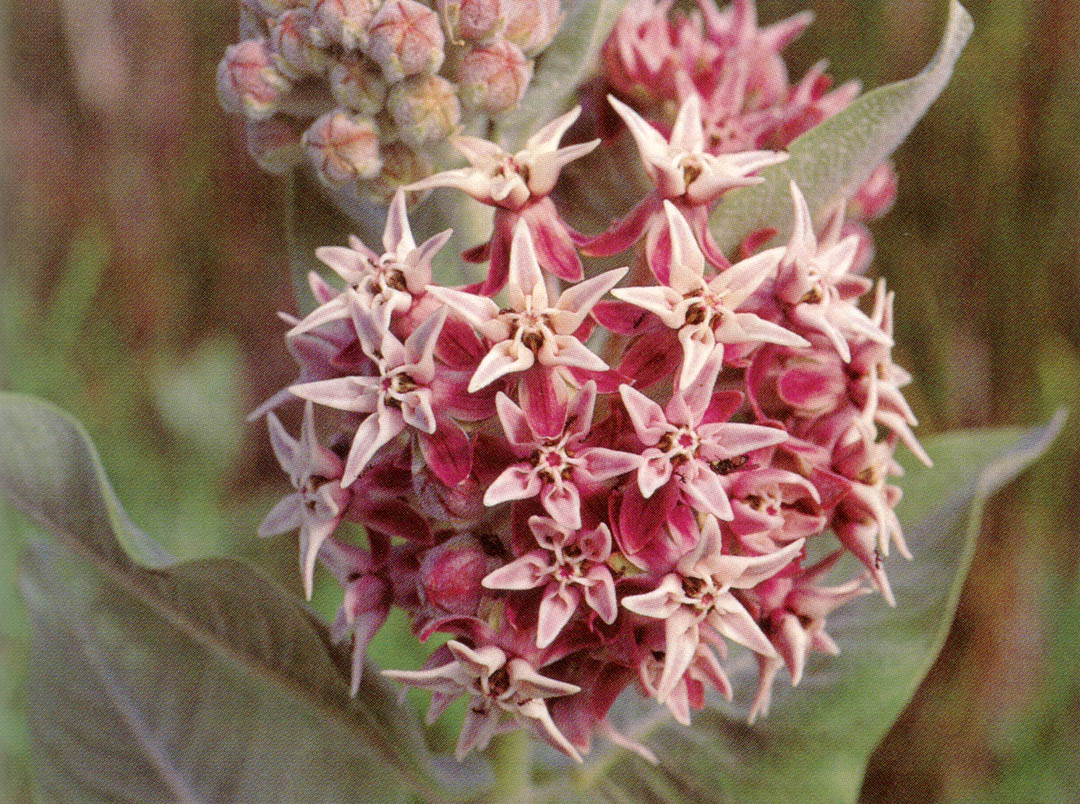
Contributor
- Topics: Archive, Growing for Biodiversity, Plants You Need
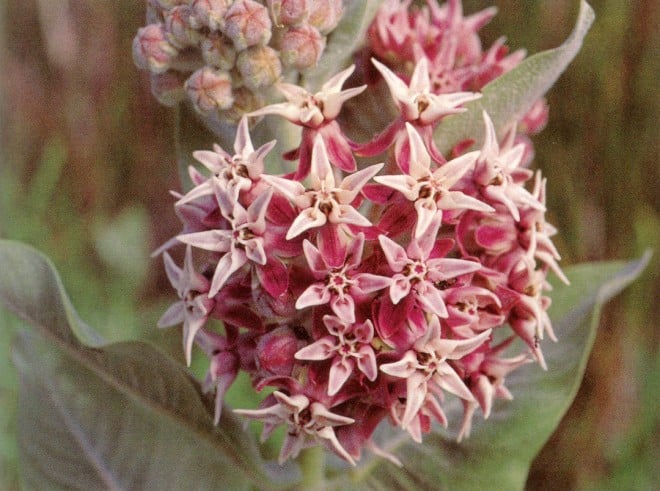
Asclepias species have been used for various purposes by primitive peoples, particularly North American Indians. The seed pods of A. tuberosa were boiled and consumed with buffalo meat; the roots were boiled and eaten as were the tender young shoots, while the latex of other species has been recommended as a substitute for rubber in times of emergency.
Frances Perry, Flowers of the World
Milkweeds are a diverse and interesting group of plants. While most plants in our gardens are purely ornamental, milkweeds have a variety of uses, including that of providing entertainment value. The genus name, Asclepias, is taken from the Greek god of healing, and alludes to properties in the milky, latex-like sap, which has been used medicinally (as an emetic or purgative). The sap contains toxic alkaloids that, when ingested by the monarch butterfly caterpillar, render it toxic to whatever eats it. Botanists suggest that 100-150 species of Asclepias are found around the world, principally in southern Africa and the Americas. Over a dozen species and subspecies are found in California and the western states alone, distributed from desert areas and grasslands to chaparral and mixed evergreen forests, and from near sea level to about 8000 feet elevation. Many of them have large, distinctive, rounded clusters of white or pink flowers that are especially striking against their often gray foliage, while the exotic species may have brilliant orange, red, or pink flowers. The simple leaves are generally opposite, though sometimes whorled or more-or-less alternate on the usually unbranched stems. Flowers appear in axillary or terminal umbel-like cymes; a few species produce solitary flowers. The seed pods, or follicles, split to release flat seeds held aloft on the air currents by a tuft of silky hairs, often called “down.”
Attempts to use milkweed down in cloth-making date from the 1600s when the French endeavored to weave a silky fabric from it. Due to the short, brittle fibers of the down and the lack of appropriate technology in those times, these early attempts failed. Other attempts to commercialize milkweed failed because it is difficult to grow as a field crop, so the down must be gathered by hand from wild growing plants. Kapok, a similarly silky fiber from the seed pods of a tropical tree (Ceiba pentandra), has been used to fill flight jackets, mattresses, and life preservers. During World War II, trade obstructions cut off the supply of kapok. Because milkweed down is hydrophobic (non-water absorbing), it was used in place of kapok by the military, and was gathered by children from roadside ditches. Today, the Natural Fiber Corporation mixes milkweed down with goose down to stuff pillows and bed-coverings. Milkweed down enhances the natural properties of goose down; it wicks moisture away from the body, and stabilizes the components in goose down that cause allergies, making the products hypoallergenic. Down is used from both Asclepias speciosa (a western species) and A. seriaca (an eastern species).
The large, horn-shaped seed pods containing the down are a marvel in themselves. When the pods first open, the seeds are layered in a perfect fish-scale pattern, and the down is compressed into a neat line. A light pinch on the down triggers it to expand, and it opens into a half circle of fluff capable of carrying the large seed away on the slightest breeze.
[sidebar]
Milkweed Resource Guide
Nursery Sources:
Butterfly Encounters (seeds), PO Box 604, Danville, CA 94526, (925) 820-4307, www.butterflyfarm.com
Mountain Valley Growers (plants), 38325 Pepperweed Road, Squaw Valley, CA 93675, (559) 338-2775
Johnny’s Selected Seeds, 1 Foss Hill Road, Albion, MN 04910-9731
Monarch Websites:
www.tpwd.state.tx.us/nature/
research/monmig.htm
www.learner.org/jnorth/www/
critters/monarch/index.html
Milkweed Products:
Natural Fiber Corporation, Ogalalla, NE, (308)284-8404
[/sidebar]
The Milkweed Community
Milkweeds are popular with ecologists because they attract and support a clearly identifiable community of invertebrates—just the right size for convenient study of species interactions. Milkweed-watching can be an amusing pastime for nature hikers, home gardeners, and their children. The milkweed community is fairly self-contained, many members having few interactions with other plants; some insects spend their whole existence on milkweeds. Visitors include a variety of herbivores, predators, parasites, nectar-feeders, and nectar thieves. Nectar-feeders such as bees (especially bumble bees) are the most important members of the community since they ensure pollination; butterflies and some nocturnal moths also contribute to pollination. Other insects such as small flies and mosquitoes, as well as predators like syrphid flies and tiny ichnuemon wasps, feed on the nectar but are too small to transport the rather heavy pollinium (in which the pollen is contained). Spiders feed on unfortunate pollinators and on insects like aphids, milkweed bugs, or milkweed beetles. A number of insects feed by sucking the plant juices and develop toxicity that reduces their risk of predation by other creatures. Ants are nectar thieves and, by seriously depleting the supply of nectar, can detrimentally reduce the number of pollinators visiting the flowers. Ants often patrol the flowers so vigorously that pollinators cannot land.
Livestock such as sheep, llamas, and horses avoid milkweeds, recognizing their toxic and unpalatable nature with the first tiny bite, but goats have been known to eat them occasionally; deer may also avoid them. Milkweeds are a problem in hay fields, where they are cut and bailed with the hay and then inadvertently ingested by livestock feeding on the hay.
The Monarch Connection
The best-known milkweed visitor in North America is the monarch butterfly. Their caterpillars feed exclusively on milkweed foliage and store the plant’s alkaloids in their tissues, making them and the adult butterflies toxic to any animal or bird that tries to eat them. In return, the monarchs provide the milkweeds with pollination.
Milkweeds, essential to the survival of monarchs, have diminished as agriculture and human activity have expanded. Formerly common throughout the West, milkweeds have succumbed to the disc, mower, herbicides, and urban sprawl. The large colonies of milkweeds that migrating butterflies once depended upon for survival have too often become small, isolated patches. In addition, pesticides and corn genetically engineered to be insecticidal (see the Laboratory Report, Pacific Horticulture, January 2000) threaten adult butterflies and caterpillars feeding on milkweeds next to agricultural areas, and may be harmful to other milkweed pollinators as well.
Monarchs are the only butterflies known to migrate significant distances annually. It takes about three to five generations of butterflies to make their way from over-wintering sites in Mexico or coastal California to the summering areas in the more northerly parts of North America. Each north-bound generation flies as far as its month-long life span permits, then lays eggs on milkweeds in whatever locality it has reached. This process is repeated until declining daylight hours signal the butterflies that it is time to turn south again. The last generation has the burden of making its way south over all the territory covered by the earlier generations to their instinctive over-wintering sites. In early spring when the weather warms, these same weary butterflies fly only a short distance (for example, from the California coast to the Central Valley), seeking milkweeds to lay their eggs on before they die, thus beginning the cycle again.
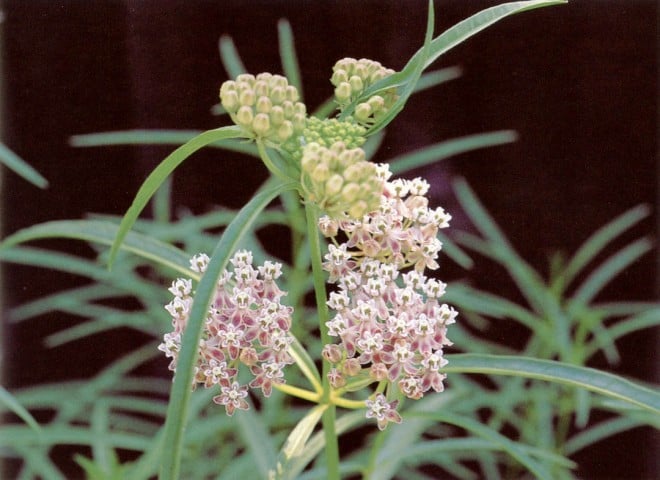
Milkweeds in the Garden
Growing milkweeds in the garden is easy and rewarding. Watching monarchs visit the plants and seeing the caterpillars grow adds another dimension to the gardening experience. Milkweed plants can be difficult to locate in nurseries, but they grow easily from seed. Some species should be stratified for a month or two, but others germinate quickly and easily without such treatment. Some of the native species are prone to aphids while in a greenhouse, but the pests disappear quickly once the plants are put outside. Many native species develop colonies by underground rhizomes. The plants grow slowly in their first year and often will not flower, but with each successive year, a more substantial colony forms. In the wild, milkweed is a colonizer of open ground and is often found in fields and pastures. It grows quickly, but like other dwellers of open places, has little tolerance for shade. Most milkweeds are not invasive, but form manageable, reliable colonies over time. The species vary in their need for water, so it is best to learn what kind of habitat each plant comes from before planting in the garden. In my experience, many of the native species do well with regular summer water, though they do not require it once established.
Some of the most commonly grown and readily available perennial species for the garden are butterfly weed or pleurisy root (Asclepias tuberosa), blood flower (A. curassivica), and swamp milkweed (A. incarnata). Native to prairies and meadows of the eastern United States, butterfly weed is a perennial to about three to four feet in height, sporting showy heads of orange flowers (sometimes red, yellow, or cream). Blood flower, from South America, is not reliably hardy in Northern California; it produces brilliant red and yellow flowers on three-foot stems. Swamp milkweed reaches three to four feet and has pink or white flowers. All are prolific producers of seed and die completely to the ground each winter. In my experience, after a few years residence in a garden, they may be prone to a buildup of orange oleander aphids (Aphis nerii) that can, with intense secretions of honeydew, turn the entire plants black and moldy, unfit for occupation by monarch caterpillars.

Just as satisfactory, easy to grow, and less prone to aphids are the milkweed species native to California and the West. In my garden, the monarchs seem to prefer the native species over non-natives for egg laying, though I do not know if this is true as a rule. Some native species have soft, fuzzy white leaves, while others are green. Many have deep taproots and are ideal for the water-conserving garden. Among the best of the native species is showy milkweed (Asclepias speciosa), a tomentose plant about three feet high with large umbels of white and pink flowers; its natural range includes most of the region from Central Canada to Texas, west to the Pacific Coast. Another striking species, with huge white umbels, is Indian milkweed (A. eriocarpa), native from Mendocino to Shasta counties. Narrow-leaf milkweed (A. fasicularis), found from California, north to Washington, and east to Nevada, is another easily grown species, with smaller white to pink flowers and delicate lacy green leaves. Woolly milkweed (A. vestita), densely hairy with yellowish-white to purplish flowers, is more demanding of good drainage and summer drought than most; it immediately develops a fat taproot to store water, so it may be a good plant for those with little water for irrigation. Similarly, ajamete (A. subulata) tolerates minimal irrigation in the garden; native to the southwestern deserts, its nearly leafless stems are well-adapted to a dry habitat.
Seed of these and many more species to suit nearly any microclimate are available through a wonderful seed company called Butterfly Encounters of Danville, California. They have an informative website that provides detailed information and photographs for each species. There are also a number of good resources on the internet dealing with the monarch butterfly story, tracking and quantifying their migrations, and providing information about their life cycles and about creating a monarch project at schools.
Share:
Social Media
Garden Futurist Podcast
Most Popular
Videos
Topics
Related Posts

Low Maintenance Gardens – Better for Pollinators and People
Autumn 2022 “I come out every day. It’s therapy, my meditation.” Janet’s young garden transformed from overgrown, invasive plants to mostly natives. The dailiness of
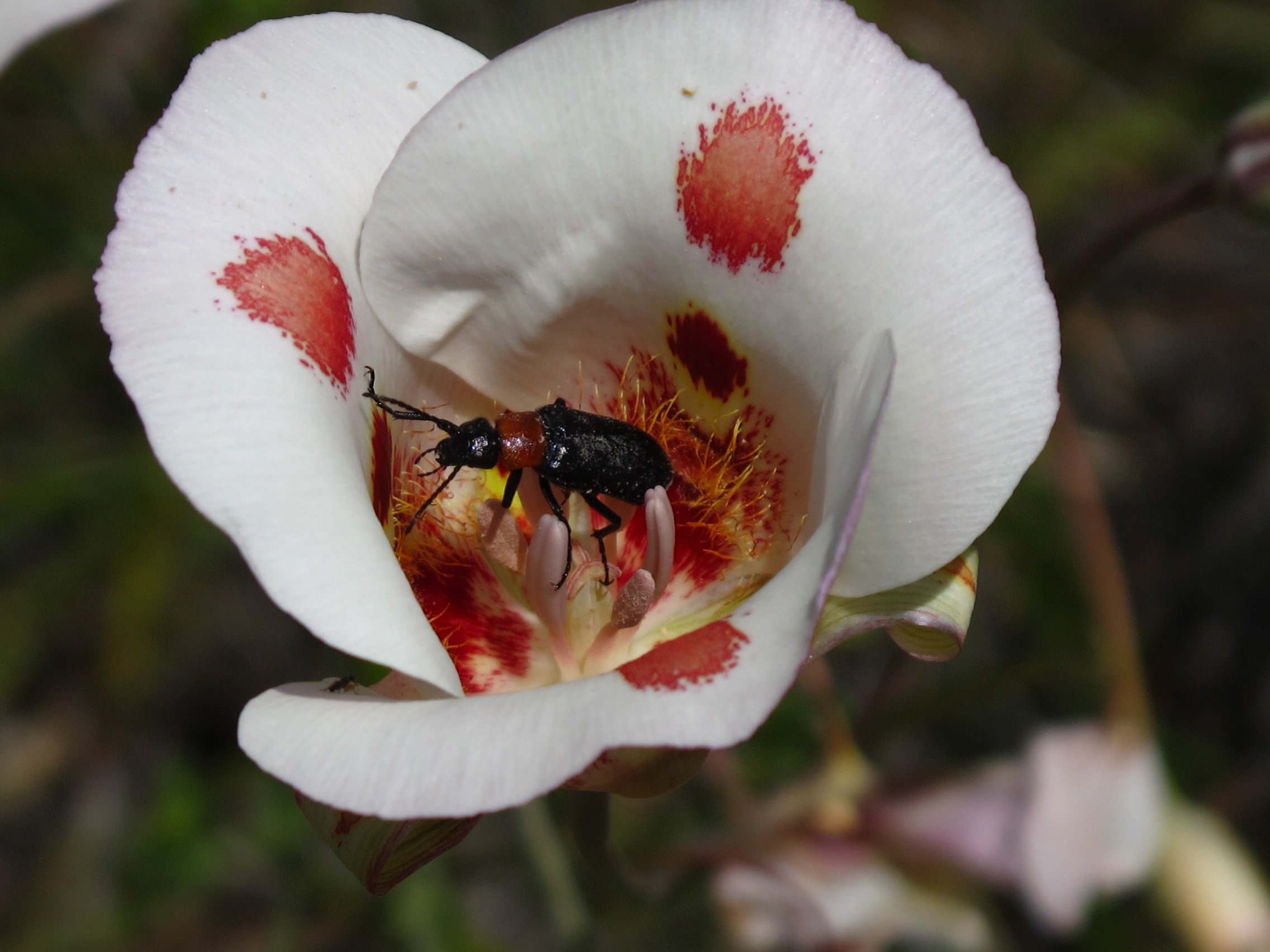
Calochortophilia: A Californian’s Love Affair with a Genus
Summer 2022 I can chart the progression of my life by Calochortus. For the last two decades, at least. As a teenage girl growing up
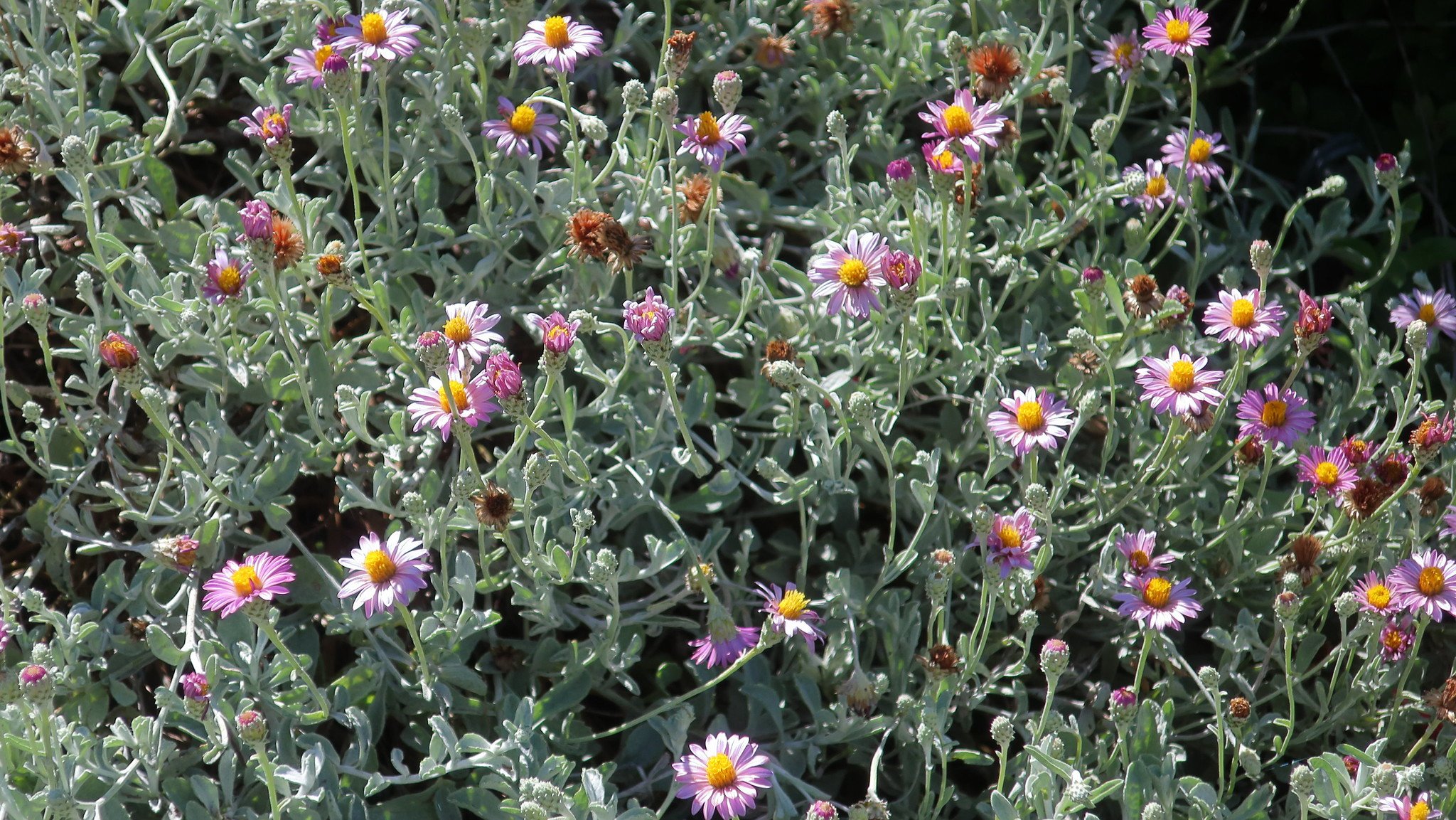
Pacific Plant People: Carol Bornstein
Spring 2022 Public gardens play a key role in demonstrating naturalistic planting design, selecting native and adapted plants for habitat, and testing techniques for reducing
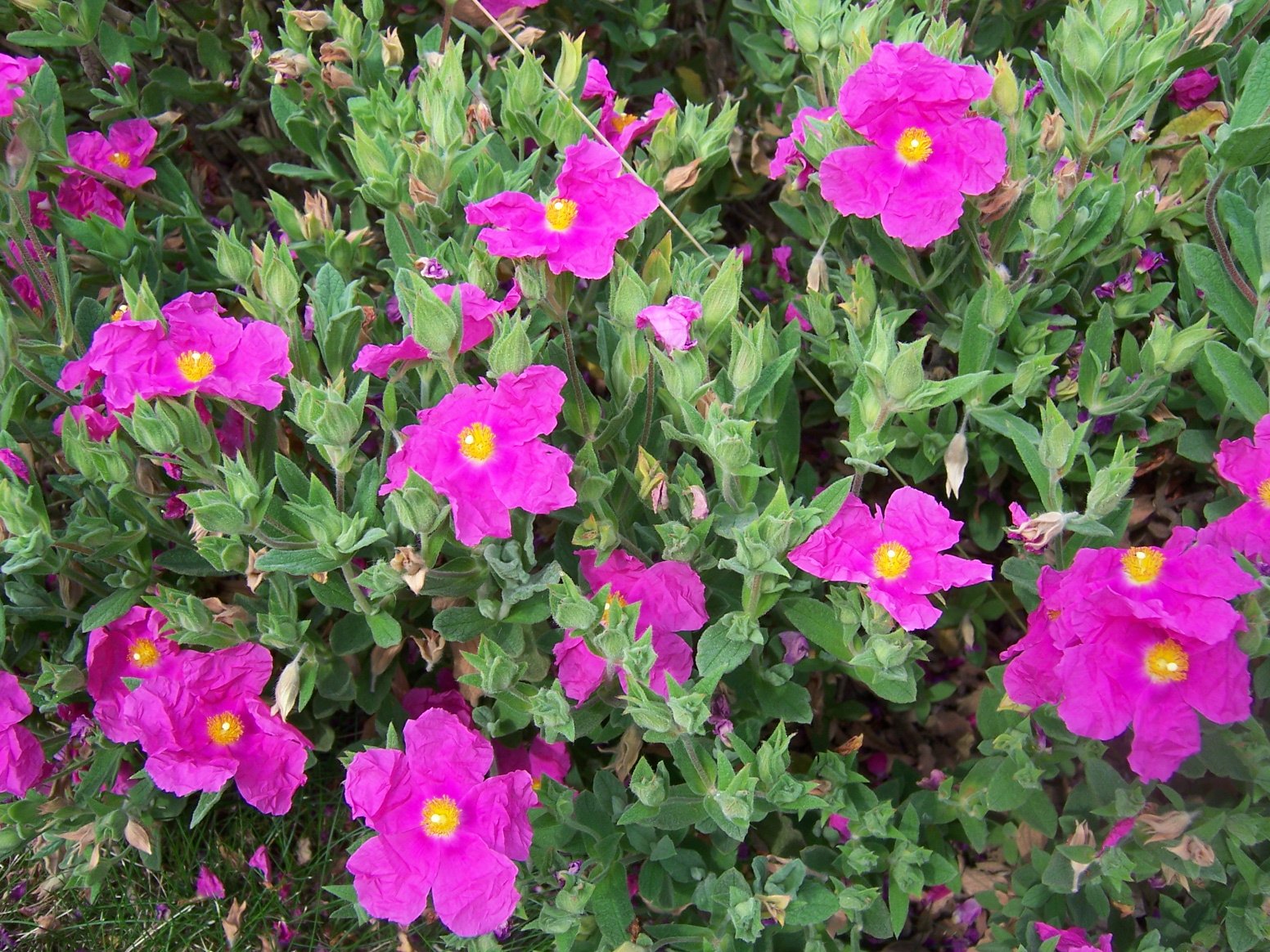
Add Year-Round Interest and Winter Blooms for Pollinators
Spring 2022 This article was created from an Interview by Merrill Jensen with Neil Bell in the Summer of 2021 for our Pacific Plant People







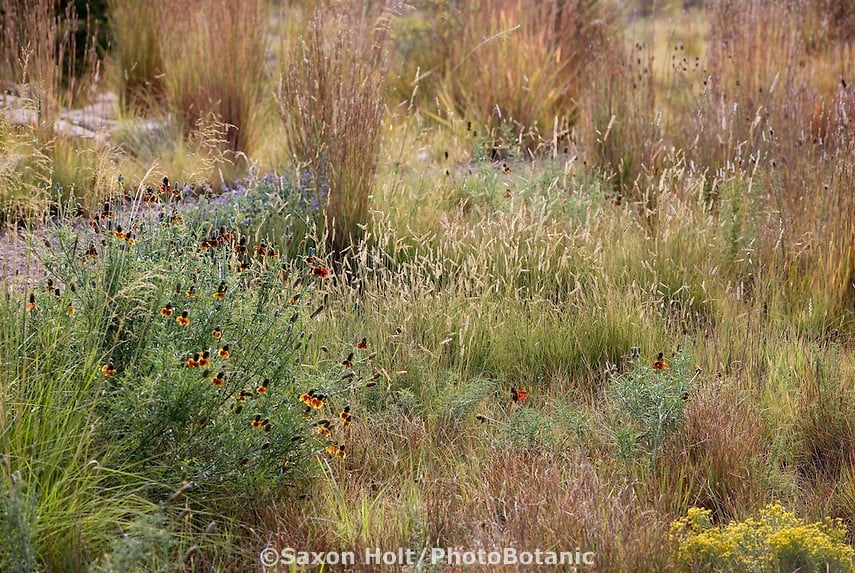



Responses